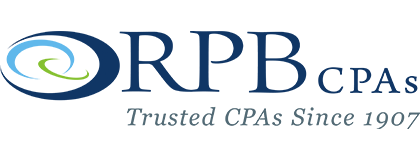Newsletters
Have the States Gone Too Far?
As the Wayfair decision begins to settle in and more and more States write regulations to follow with what items they feel are subject to sales tax in there state for out-of-state sellers, it appears the trend is just getting started. Employers BEWARE! The Wayfair decision has definitely changed how many employers need to keep records for sales taxation and the large new paperwork burden it is placing on them. However, what's next? Many believe the Wayfair decision will directly impact income tax filing regulations as well many more companies subject to state income tax filing obligations as well.
Fiduciary duties: What your board members need to know
Not-for-profit board members — whether compensated or not — have a fiduciary duty to the organization. Some states have laws governing the activities of nonprofit boards and other fiduciaries. But not all board members are aware of their responsibilities. To protect your nonprofit’s financial health and integrity, it’s important that you help them understand. Primary responsibilities In general, a fiduciary has three primary responsibilities: Duty of care. Board members must exercise reasonable care in overseeing the organization’s financial and operational activities. Although disengaged from day-to-day affairs, they should understand its mission, programs and structure, make informed decisions, and consult
Measuring “fair value” for financial reporting purposes
The standard for valuing certain assets and liabilities under U.S. Generally Accepted Accounting Principles (GAAP) is “fair value.” This differs from other valuation standards that may apply when valuing a security or business interest in a litigation or mergers and acquisitions (M&A) setting. FASB guidance The Financial Accounting Standards Board (FASB) issued Accounting Standards Codification (ASC) Topic 820, Fair Value Measurements and Disclosures , in 2006. It defines fair value as “the price that would be received to sell an asset or paid to transfer a liability in an orderly transaction between market participants at the measurement date.” The
Does your nonprofit need a CFO?
Your not-for-profit’s ability to pursue its mission depends greatly on its financial health and integrity. If your nonprofit is growing and your executives are struggling to juggle financial responsibilities, it may be time to hire a chief financial officer (CFO). Core responsibilities Generally, the nonprofit CFO (also known as the director of finance) is a senior-level position charged with oversight of accounting and finances. He or she works closely with the executive director, finance committee and treasurer and serves as a business partner to your program heads. A CFO reports to the executive director or board of directors on
The Ever Evolving World of Sales Tax
Each year politicians at the Federal and State level are often torn between increasing taxes or cutting services. Although the Federal government has the ability to run a deficit, avoid raising taxes AND avoid cutting services, the States do not, since they must balance their budgets. In the past, most taxpayers in Wisconsin have focused their tax "complaints" on income and property taxes, since Wisconsin has been historically high on both fronts. As the global landscapes continue to evolve, we see the politicians following that lead while trying to avoid cutting services. To that end, many Wisconsin politicians have turned
How does an employee’s military leave affect 401(k) loan repayments?
When 401(k) plan participants are called to active duty, they often request to suspend their 401(k) plan loan repayments during their military leaves. Many employers may wonder whether the rules for suspending loan repayments during a military leave differ from those applicable to a regular leave of absence. Indeed, they do. Basic rules The rules for suspending loan repayments during a military leave of absence are broader and more flexible than for a regular leave of absence. For a regular leave, the maximum suspension period is one year and the entire loan must be repaid within the maximum permissible
Close-up on financial statements
There are three types of financial statements under U.S. Generally Accepted Accounting Principles (GAAP). Each one reveals different, but equally important, information about your company’s financial performance. And, together, they can be analyzed to help owners, management, lenders and investors make informed business decisions. Profit or loss The income statement shows revenue and expenses over the accounting period. A commonly used term when discussing income statements is “net income,“ which is the income remaining after all expenses (including taxes) have been paid. It’s also important to check out the company’s “gross profit.“ This is the income earned after subtracting
How to outsource your nonprofit’s human resources function
Outsourcing human resources can give your not-for-profit’s staff more time to spend on core duties and mission-driven programs and it may be cost-effective. Here are some suggestions if you’re thinking about outsourcing part or all of your HR tasks. First steps First, decide which segments of the HR function to farm out. Take a look at payroll, recruiting, training, benefits planning and administration, compliance monitoring, leave management and performance reviews. These are all labor-intensive responsibilities where expertise counts. Transferring all or some of them to the right outside party can vault your organization to a higher level of professionalism
Did I Miss a Tax Credit?
Now that "Tax-Time" is unofficially ended for most people many people should be taking time to ask, "Did I miss anything". For the tax professional, "Tax-Time" never ends. It is an ongoing year of planning and review to make sure your clients are in the best position they can be from a tax standpoint. With the passing of the tax overhaul, many professionals are finding this time is more important than the season itself. Without good communication between you and your CPA many things that a business owner does not see as important can be tax windfalls. Most people think
How do profits and cash flow differ?
Business owners sometimes mistakenly equate profits with cash flow. Here’s how this can lead to surprises when managing day-to-day operations — and why many profitable companies experience cash shortages. Working capital Profits are closely related to taxable income. Reported at the bottom of your company’s income statement, they’re essentially the result of revenue less the cost of goods sold and other operating expenses incurred in the accounting period. Generally Accepted Accounting Principles (GAAP) require companies to “match” costs and expenses to the period in which revenue is recognized. Under accrual-basis accounting, it doesn’t necessarily matter when you receive payments from



